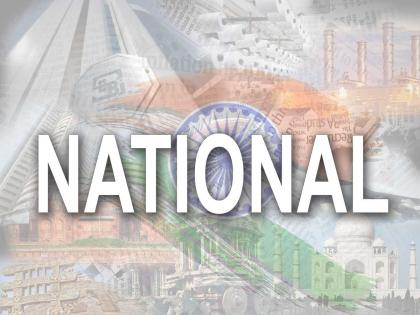DMK petition in SC seeks to declare newly-enacted citizenship law unconstitutional
By ANI | Published: December 17, 2019 02:14 PM2019-12-17T14:14:52+5:302019-12-17T15:30:02+5:30
The Dravida Munnetra Kazhagham (DMK) on Tuesday filed a petition in the Supreme Court against the Citizenship (Amendment) Act, 2019, seeking directions to declare it as unconstitutional.

DMK petition in SC seeks to declare newly-enacted citizenship law unconstitutional
The Dravida Munnetra Kazhagham (DMK) on Tuesday filed a petition in the Supreme Court against the Citizenship (Amendment) Act, 2019, seeking directions to declare it as unconstitutional.
In its petition, the DMK sought that the court passes an appropriate order declaring that the citizenship law published in the government gazette on December 12, as unconstitutional, null and void and ultra vires of Articles 14 and 21 of the Constitution of India.
"The Act is a classic example of spewing venom against one section of the human race by targeting the Muslim community and letting down the Tamils who have come from the neighbouring country as refugees and who are similarly placed in the impugned act and who are staying for more than several decades together in Tamil Nadu," the DMK said in the petition.
It said that the citizenship law is in 'utter violation' of the fundamental rights guaranteed under the Constitution as it violates Art 14 and 21 of the Constitution of India.
"It is also in derogation to the reports of the Parliamentary committee dated January 7, 2019, and also violates the accord called Assam Accord signed on August 15, 1985, the petition said.
"The impugned Act is also bad in the teeth of the law laid down by this Court in Sarbananda Sonowal against Union of India and breaches the international obligations approved and agreed by India through international covenants," it added.
The petition also said that the impugned act creates unreasonable classifications on the basis of religion and geography and there is no rational nexus sought to be achieved under the same.
It said that the Act is arbitrary as it relates to only three countries -- Pakistan, Afghstan and Bangladesh -- and confines to only six religions -- Hindu, Sikh, Buddhist, Jain, Parsi and Christian Communities -- and expressly excludes Muslims.
Interestingly, the DMK said that there was no reason to include Afghstan in the impugned Act as the same was never part of undivided India nor there any reasonable classification to confine three countries as persons from other countries who are similarly situated will be kept away from such benefits.
It contended that therefore the impugned act is irrational, whimsical, fanciful and is mfestly arbitrary.
The DMK has been protesting against the new law ever since it was enacted with the party President MK Stalin terming it as a direct assault on secularism, equality, and fraternity.
( With inputs from ANI )
Open in app